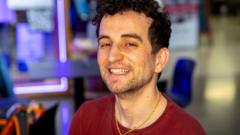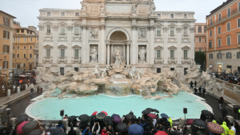Steve Ballmer is richer than Warren Buffett. But his portfolio depends mostly on one stock.

Steph Chambers via Getty Images
- Steve Ballmer said his investment strategy is partly influenced by Warren Buffett.
- But Ballmer, whose net worth is larger than Buffett's, has an unconventional investment portfolio.
- More than 80% of Ballmer's portfolio is held in Microsoft stock, per The Wall Street Journal.
Steve Ballmer has an unorthodox investing approach.
The former Microsoft CEO is worth $151 billion, per the Bloomberg Billionaires Index, making him the ninth richest person the world.
That puts him ahead of famed investor Warren Buffett by a nearly $10 billion margin.
In an interview published Sunday, Ballmer told The Wall Street Journal that his investment strategy is partly influenced by Buffett, who has long said that since most people picking stocks cannot beat the returns of a general index fund. But there's one key difference.
The Journal reported that Ballmer keeps more than 80% of his portfolio in Microsoft stock. The rest is held in index funds. Ballmer declined to say how large his stake is in Microsoft.
"Microsoft's outperformed just about every other asset I could have owned," Ballmer told the Journal.
Ballmer's investment strategy goes against conventional wisdom, which suggests that people reduce their risk by diversifying their capital across different asset classes. And the world's wealthiest people typically go beyond stocks and bonds to invest in non-liquid assets like private equity and real estate. Ballmer said he is "mostly dialing out of private equity."
To be sure, Ballmer wasn't always going against the trend.
The 68-year-old tried diversifying in the past but said he struggled to find money managers who consistently beat the market.
"The only stock I really study still is Microsoft, because that's still overwhelmingly, overwhelmingly, overwhelmingly the No. 1 thing that I own," Balmer told the outlet.
Ballmer began his career at Microsoft in 1980 and succeeded founder Bill Gates as CEO in 2000.
According to regulatory filings, Ballmer held 333 million shares, or a 4% stake, in Microsoft when he stepped down as CEO in 2014.
Microsoft's shares are up 16.1% this year. The Seattle-based tech giant has been in front of the AI race with huge bets on startups like Sam Altman's OpenAI and France's Mistral AI.
In October, Microsoft CEO Satya Nadella said in an earnings call that the company's AI business is on track to top an annual revenue run rate of $10 billion next quarter.
This would make it the fastest business in Microsoft's history to reach that milestone, Nadella added.
Ballmer attributes his bumper gains in Microsoft's stock to luck.
"Forget the stock price. I had luck, essentially, in getting to listen to the right people," Ballmer told the Journal.
"But I also had luck in terms of my loyalty to the company and not wanting to be a seller as a leader of the business. It turned out to be a great investment thing, too," he added.
Ballmer did not respond to a request for comment from Business Insider.











